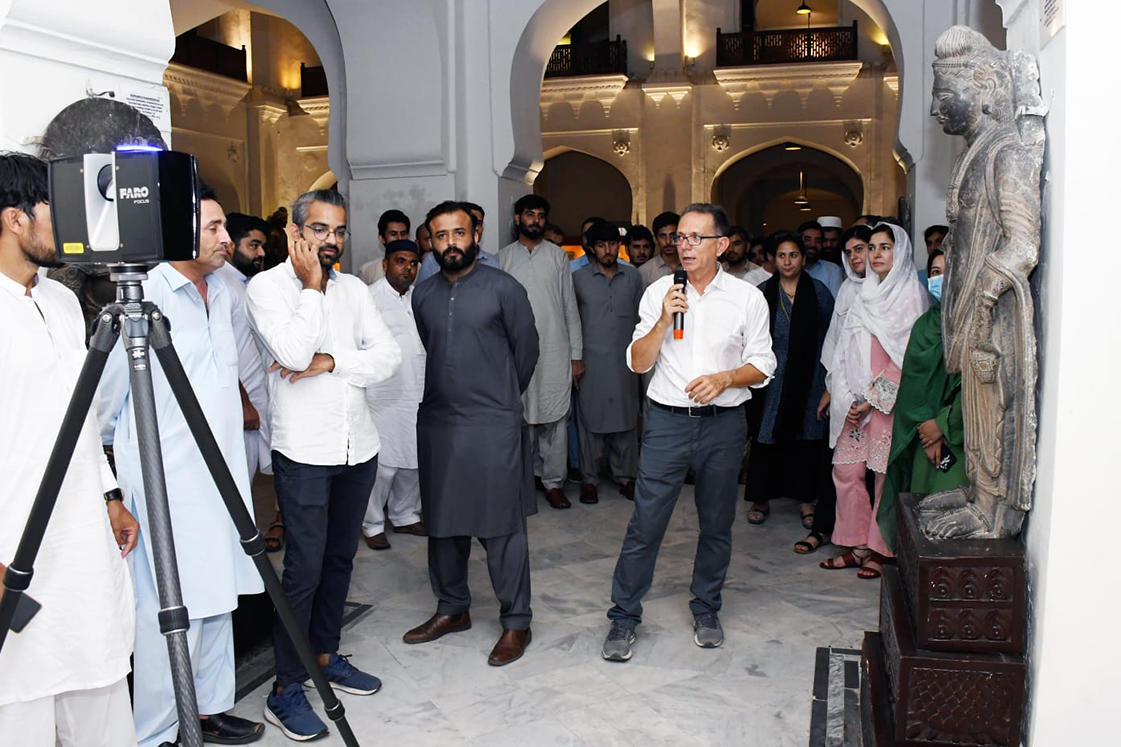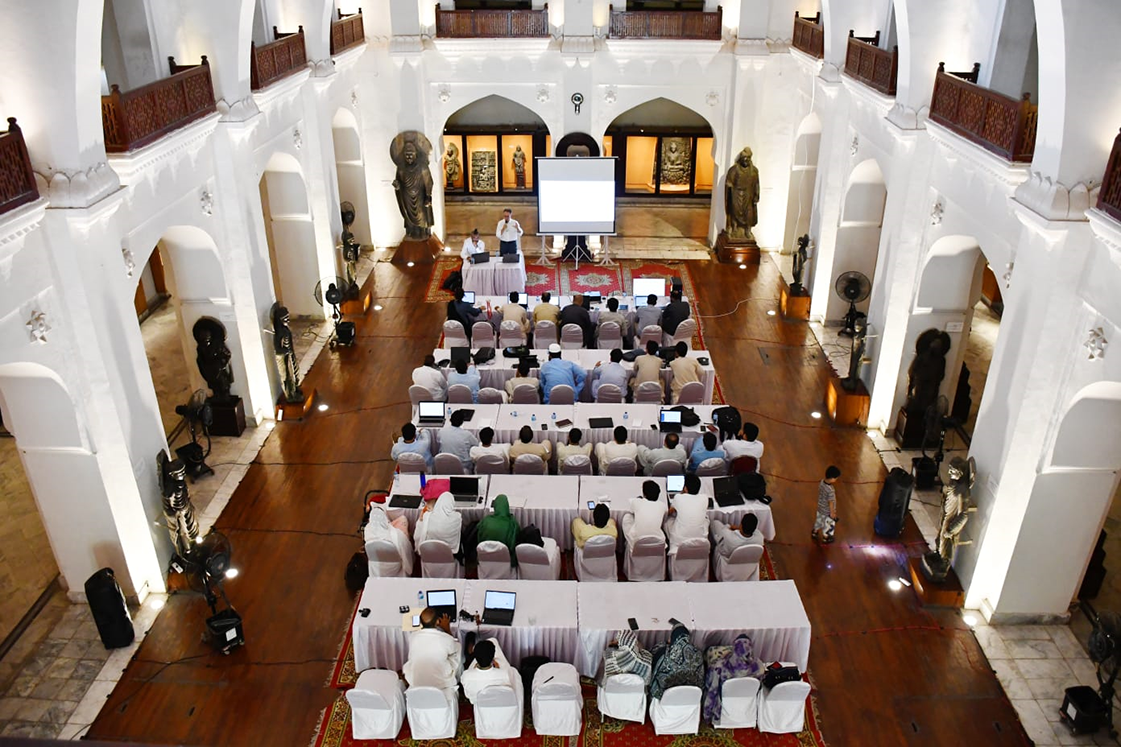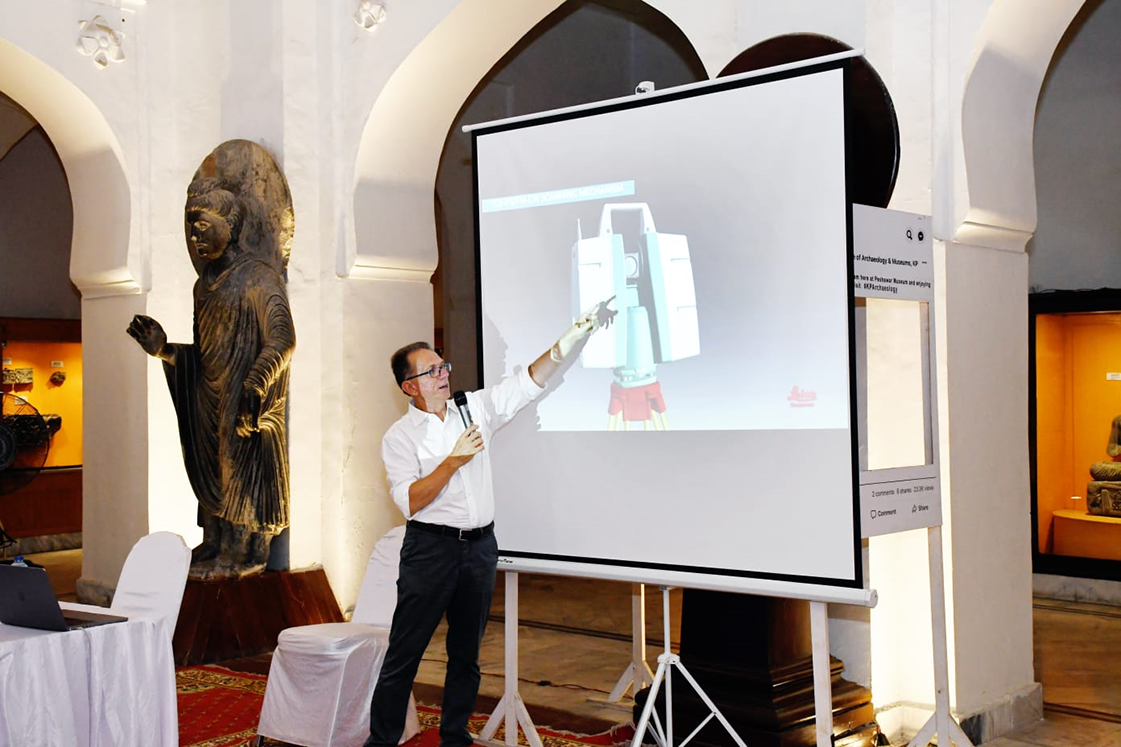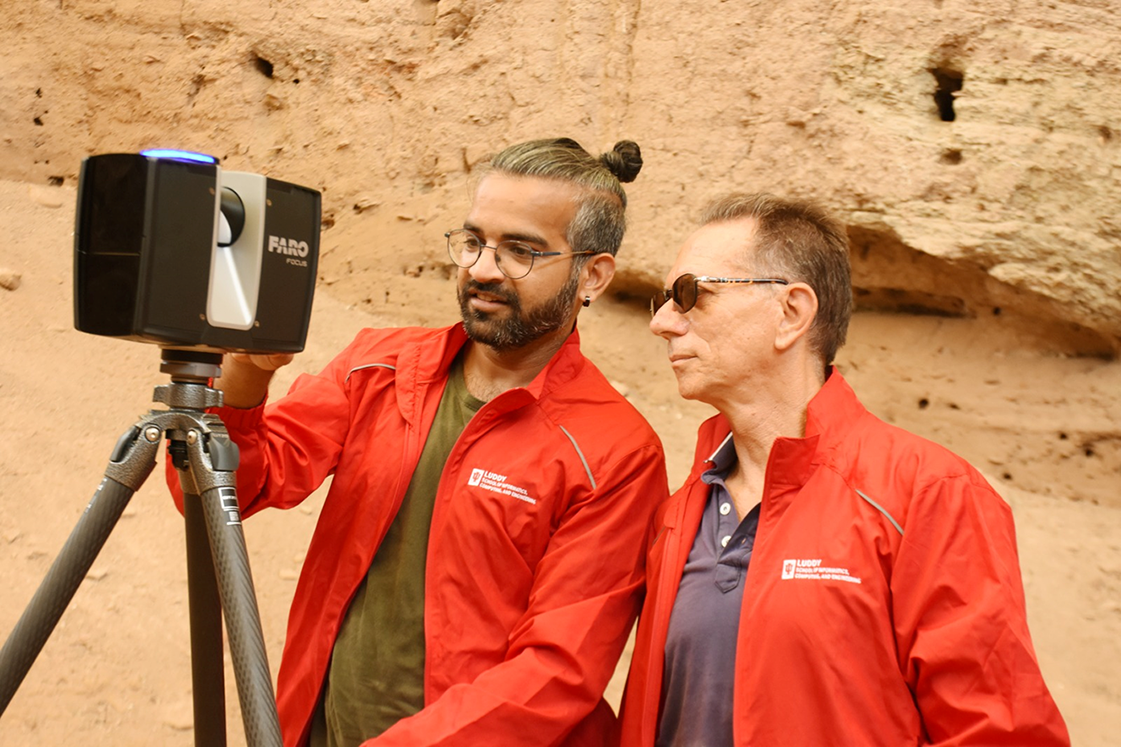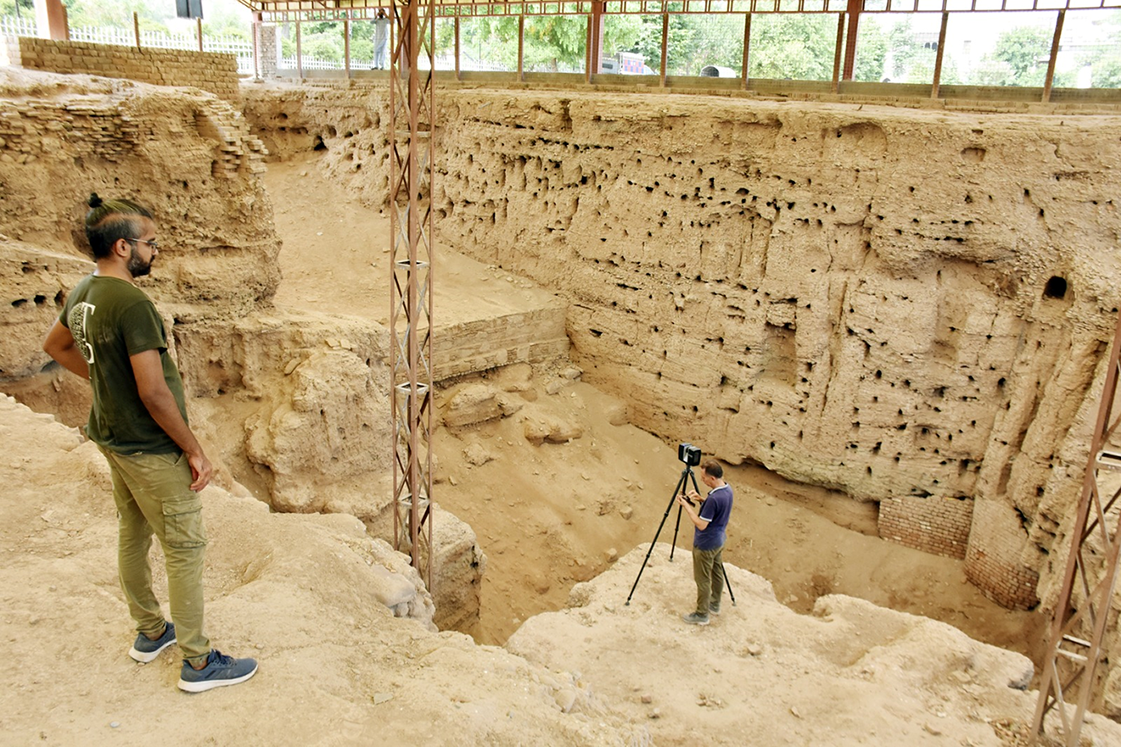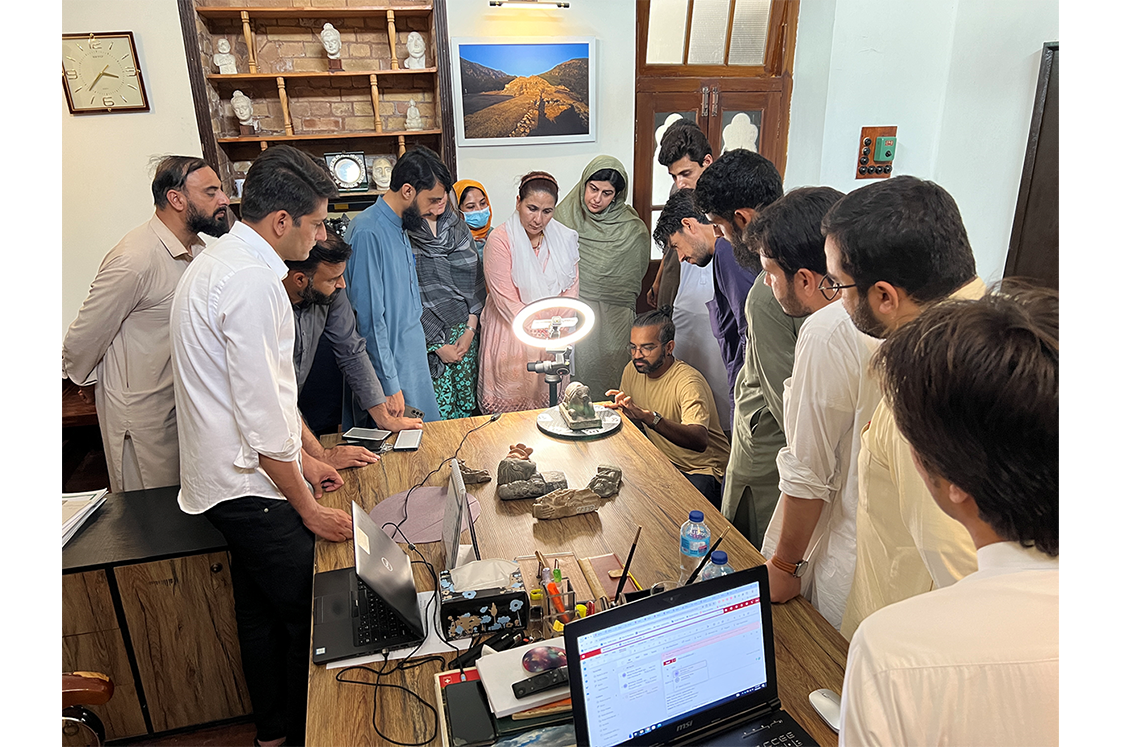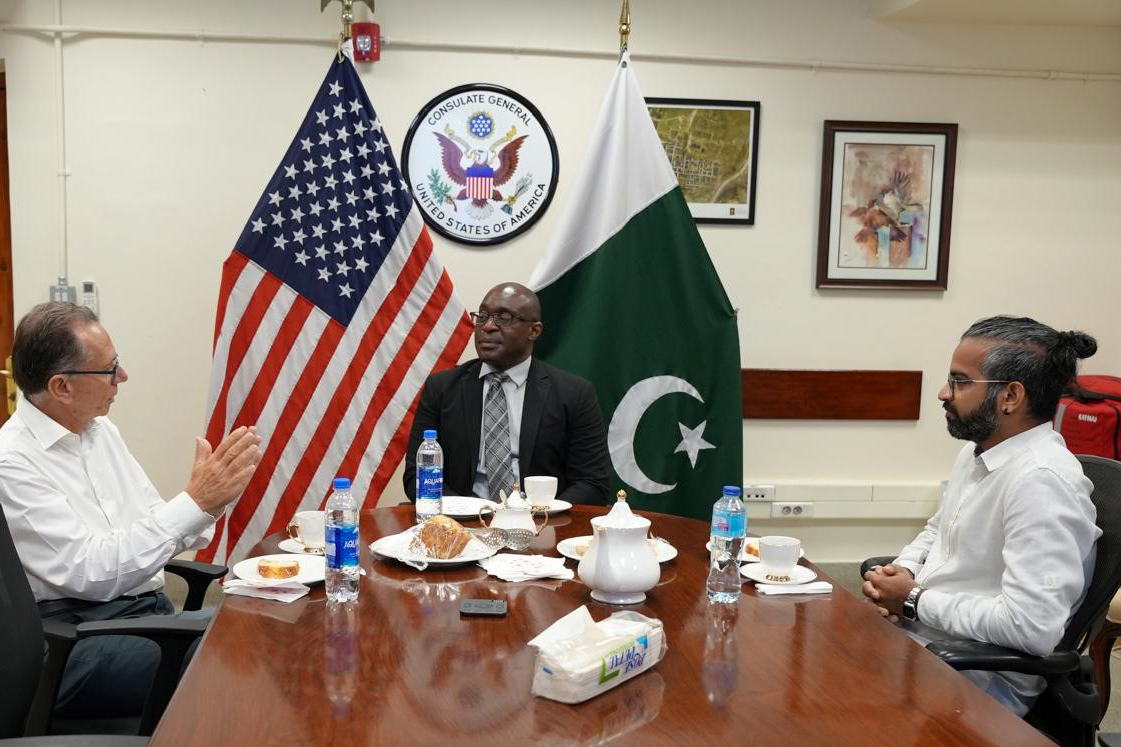About
The Safeguarding Cultural Heritage in Khyber Pakhtunkhwa project aims to enhance the skills of approximately 35 staff members of the Khyber Pakhtunkhwa (KPK) Directorate for Archaeology and Museums in Pakistan. KPK is home to 15 museums and major archaeological sites across the province. With two-years of funding provided by the U.S. Department of State, we are committed to delivering specialized training in modern museum practices with a focus on handling and cataloging artifacts, preventative conservation methods, modernized record keeping, and 2D/3D digitization.
To ensure the sustainability and effectiveness of this initiative, we first surveyed the existing technological resources available locally collaborated with local training and research institutions to make this project sustainable. Our training program will significantly improve the skills of the KPK museum staff in various modern museum practices. By leveraging local experts to design and implement the training course, we ensure that training opportunities continue beyond the project's completion. Local partners have committed to dedicating in-house equipment and resources to maintain training programs in the future.
KPK is rich in archaeological heritage, hosting many ancient civilizations, notably the Gandhara culture. The current museum staff, often graduates of local archaeology programs, have a solid theoretical background but lack practical training in modern curation and conservation techniques. This gap exists because local archaeological schools do not have practical labs or up-to-date equipment, and there is a shortage of experts to teach advanced techniques. Our training program will address these issues by focusing on four key areas: museum practices and 3D digitization/visualization; conservation of clay, stucco, and terracotta objects; conservation of decorated surfaces and architectural decorations; and conservation of coins and metal objects.
Understanding the current skill set of the Directorate of Archaeology and Museums (DAM) staff is crucial for setting specific objectives. Therefore, we collected preliminary information from DAM and the newly established Digital Heritage Center (DHC). Our objectives include developing an understanding of the current practices and knowledge of DAM staff in preventative conservation methods, museum handling and cataloging, record keeping, and digitization. We aim to design training courses based on the specific needs of KPK museums, survey existing local resources to ensure sustainability, and conduct practical training courses for KPK museum staff in Pakistan. This training will include hands-on experiences with archaeological sites and local museum collections, ensuring that the skills acquired are directly applicable and sustainable.


